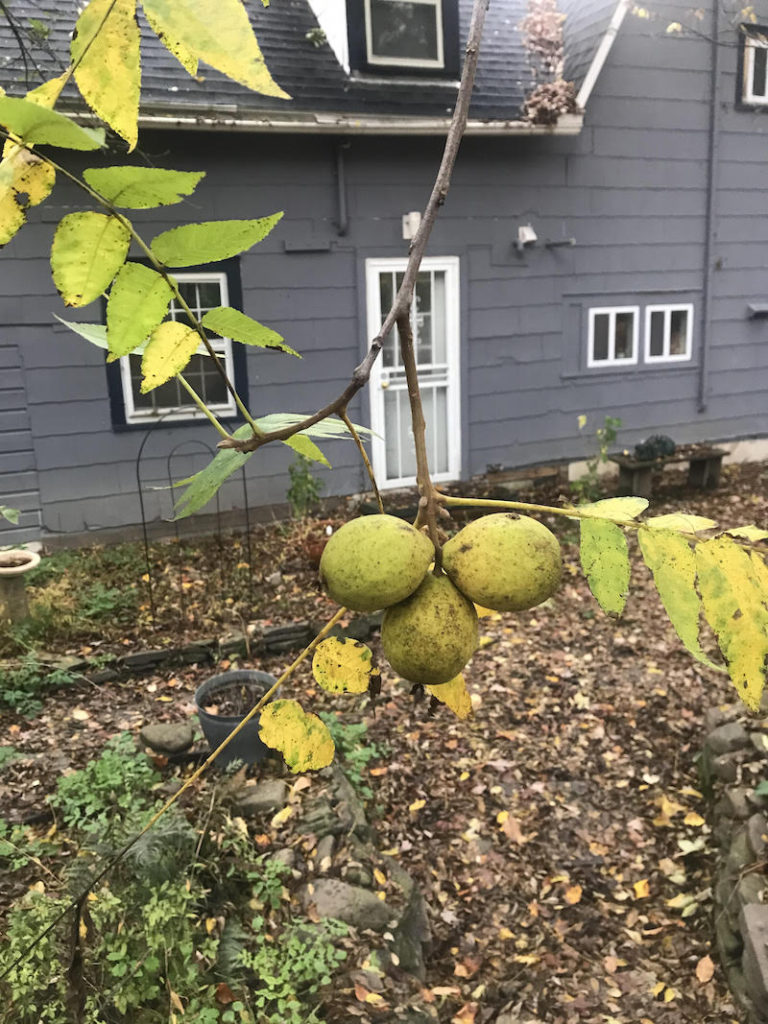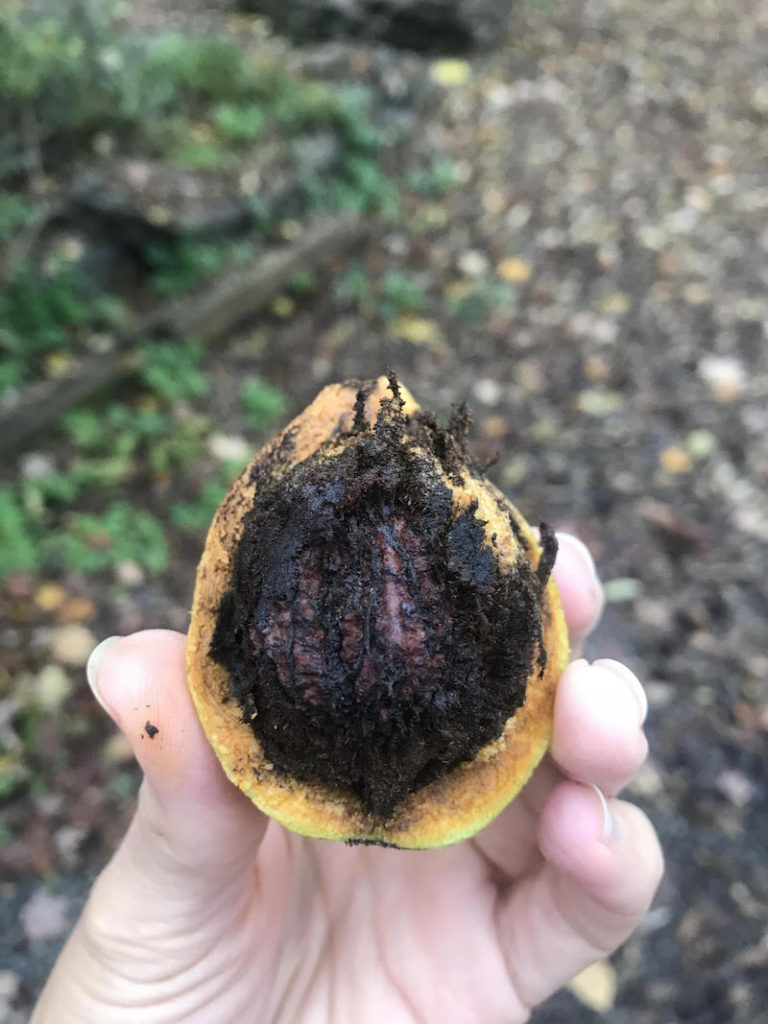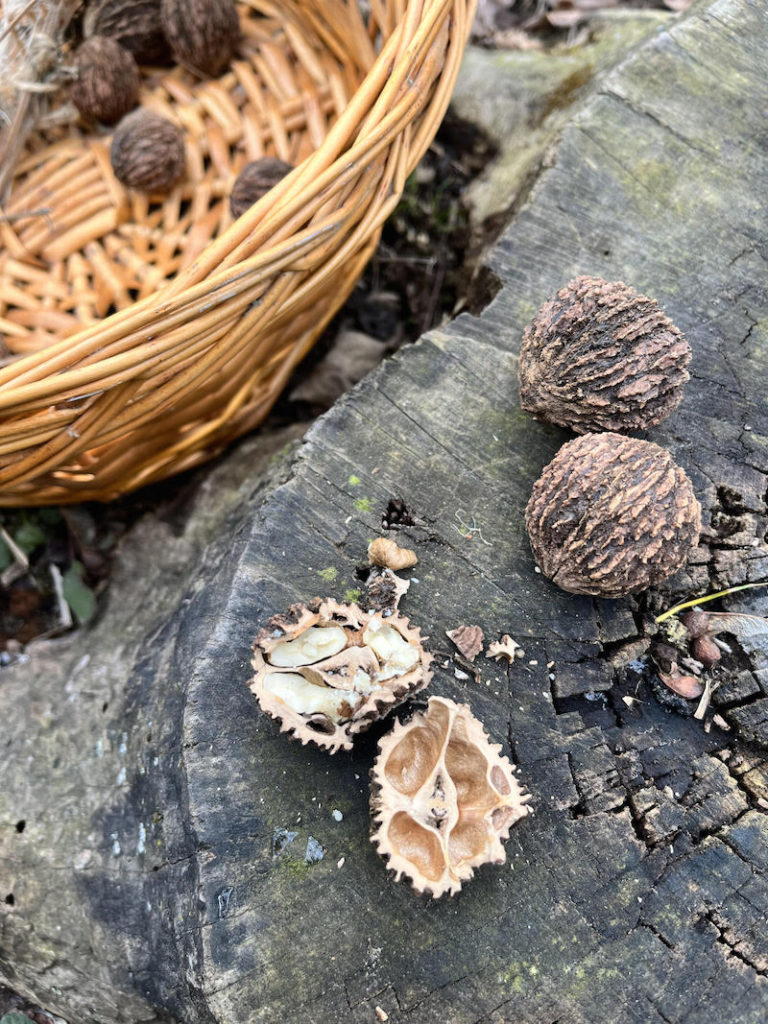Black Walnuts — Juglans nigra

Juglans nigra, or the Eastern American black walnut comes from the deciduous tree species and is apart of the walnut family. From about the second week of September to around the third week of November, the sound of walnuts hitting the ground can be heard throughout the northeast. Careful when walking under a walnut tree because you will get knocked upside the head.
Walnuts are a great food source of the essential fatty acid, Omega 3, Alpha-Linolenic Acid (ALA) which are very important for the overall health of the heart and blood vessels. The squirrels also find walnuts essential for vital nutrients to get them through the cold winter when food is minimal and can be heard celebrating their fall feast making strange noises. ALA is crucial for a variety of ailments such as those with allergies, arthritis, heart disease, memory, nervous, and skin problems.
The list of ALA benefits is lengthy, but in a nutshell, Omega 3 fatty acids decrease bodily inflammation and blood clots in vessels. Like nature herself however who works in communion with all elements, ALA relies on the balanced ratio of Omega 6 fatty acid or Linoleic acid which is responsible for the opposite bodily effects of Omega 3. Linoleic acid causes the constriction of blood vessels and bodily inflammation. Both are needed for homeostasis. More to come on fatty acids.
A natural herbicide
Once the tree’s fruits are ripe, they will begin to fall. The nuts are wrapped in a green husk that smells similar to a lime due to the chemical juglone. This chemical constituent of the tree is rather fascinating in that when it is circulating in the tree it is considered non-toxic, but once the tree becomes invaded by a harmful insect for instance, juglone will act like a natural herbicide. Once jugone is breached out of the tree and oxidizes, it can be a potent poison to nearby plants and soil.

For harvesting the tree’s fruit, it is best to gather them when the fallen husks are still green. They can still be gathered when the jugone has oxidized and turned the husk black too.
Here is a list of DIY steps for harvesting black walnuts:
• Try to gather the husks when they just fallen. Note: they should be slightly soft so that when you press into the husk there is a finger imprint.
• Cut off the husks using a knife. There will still be a pithy substance around the walnut shell.
• Rinse off the pith as best possible by soaking the walnuts (once removed from husks) in water.
Irritating the pith by power washing or rubbing the nuts together will help to clean off the husk debris. Note: if any of the walnuts float to the top when soaking, these are nuts to throw back into the wild for our rock star squirrel friends since they often have rotten nut meat and they don’t mind.
• Once the hard shell is mostly clean and clear, place the nuts in an aerated cloth i.e cheese cloth, for at least a couple weeks to cure. Note: Unshelled walnuts will last up to two years.
• Now for the tricky part: There are a few ways to crack open the tough black walnut shells such as using a hammer (have some fun here) on the softer end of the nut or use the side of a brick for smashing. Once the shell has cracked open you can throw them in a container where most of the nut meat will still be enclosed in the shell. After the shell has been cracked, you will still need to pick out the nut meat. It is advised to use a sort of clipper like a wire clipper to remove nut meat from the shell. Note: Black walnuts are tougher than english walnuts to extract the meat, but they are well worth the patience.

Disfruta de las nueces negras
Now, it’s time to enjoy the fruits of your labor! The nuts have a fruity taste that is unique to black walnuts. Loaded with essential fatty acids, these walnuts make a great addition to any dish, especially baked goods. Medical Medium, Anthony William has an awesome banana and wild blueberry bread that is divine with some toasted walnuts on top or you could just eat them plain. In whatever way you decide to enjoy these walnuts, they are well worth the time and effort. If you decide to wild forage for some, let us know know how it goes. Salud Gaia!



